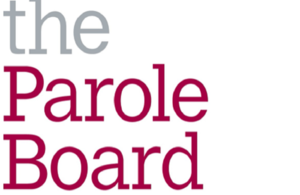National Living Wage increase to protect workers’ living standards
Press release
Announcement of the 2021 National Living Wage and National Minimum Wage rates.

The Government has today announced the National Living Wage (NLW) and National Minimum Wage (NMW) rates which will come into force from April 2021. It accepted in full recommendations made by the Low Pay Commission at the end of October.
The National Living Wage will increase by 2.2 per cent from £8.72 to £8.91, and will be extended to 23 and 24 year olds for the first time. For workers aged under 23, Commissioners recommended smaller increases in recognition of the risks to youth employment which the current economic situation poses.
Bryan Sanderson, Chair of the Low Pay Commission, said:
Recommending minimum wage rates in the midst of an economic crisis coupled with a pandemic is a formidable task. The difficulty in looking forward even to next April is daunting. There are strong arguments concerning both low-paid workers – many performing critically important tasks – and the very real solvency risks to which small businesses are currently exposed. In these unprecedented conditions, stability and competence are prime requirements.
Our value as a social partnership is to use the imperfect economic evidence to produce a recommendation which is professionally researched and dispassionate. Most importantly, after much debate it has the support of the business, trade union and academic representatives who make up the Commission. We have opted for a prudent increase which consolidates the considerable progress of recent years and provides a base from which we can move towards the Government’s target over the next few years.
The increase in the NLW will mean that low-paid workers’ incomes rise broadly in line with predicted wage growth; and modestly ahead of projected increases in prices, meaning low-paid workers’ living standards should be protected. Commissioners do not believe the increase presents a significant additional risk to employment prospects, beyond the already challenging outlook.
The LPC’s recommendations comprised:
| Rate from April 2020 | Rate from April 2021 | Increase | |
|---|---|---|---|
| National Living Wage | £8.72 | £8.91 | 2.2% |
| 21-24 Year Old Rate | £8.20 | £8.36 | 2.0% |
| 18-20 Year Old Rate | £6.45 | £6.56 | 1.7% |
| 16-17 Year Old Rate | £4.55 | £4.62 | 1.5% |
| Apprentice Rate | £4.15 | £4.30 | 3.6% |
| Accommodation Offset | £8.20 | £8.36 | 2.0% |
Low Pay Commissioners remain committed to the Government’s goal of ending low pay. Given uncertainties over the long-term economic outlook, they have not recommended any change to the Government’s target of the NLW reaching two-thirds of median earnings by 2024. The LPC’s report sets out an indicative future path for the NLW; but the effects of furloughing on pay data limit its precision this year.
The LPC submitted its recommendations on 30 October, meeting the deadline set by the Government. This was before the announcement of further lockdown restrictions in England and the extension of the Coronavirus Job Retention Scheme.
Notes for Editors
- The Low Pay Commission is an independent body made up of employers, trade unions and experts whose role is to advise the Government on the minimum wage. The rates announced today follow recommendations agreed unanimously by the Commission and accepted by the Government.
- In line with the end-October deadline set in its remit, the LPC submitted its recommendations to the Government on 30 October 2020, following final deliberations from 27-29 October.
- The LPC is today publishing two documents: the letter of advice from Bryan Sanderson to the Rt Hon Alok Sharma MP, setting out the Commission’s recommendations and rationale; and a short report summarising the evidence on which these recommendations were based. The LPC’s full report, setting out its evidence base in detail, will be published in early December.
- From April 2021, the National Living Wage (NLW) will be the statutory minimum wage for workers aged 23 and over. It currently applies to workers aged 25 and over. The reduction in the NLW age threshold follows a review of the structure of the National Minimum Wage youth rates and recommendations made by the LPC in autumn 2019. The threshold will further reduce to 21 by 2024.
- Different minimum wage rates apply to younger age groups: 21-22 year olds (from 1 April 2021), 18-20 year olds, 16-17 year olds and to apprentices aged under 19 or in the first year of an apprenticeship.
- The Government has set a target for the NLW to reach two-thirds of median earnings by 2024. The LPC makes recommendations on this basis. The NLW was originally introduced in April 2016 and had a target of 60% of median earnings by 2020, which the April 2020 uprating to £8.72 was forecast to reach.
- In its remit letter to the LPC in March, the Government asked the LPC “to monitor the labour market and the impacts of the National Living Wage closely, advise on any emerging risks and – if the economic evidence warrants it – recommend that the government reviews its target or time-frame. This emergency brake will ensure that the lowest-paid workers continue to see pay rises without significant risks to their employment prospects.” The full remit letter is available here.
- Rates for young workers and apprentices are lower than the NLW in reflection of lower average earnings and higher unemployment rates among these groups. International evidence also suggests that younger workers are more exposed to employment risks arising from the pay floor than older workers. Unlike the NLW (where the Government accepts the possibility of some consequences for employment as a result of achieving the target), the LPC’s remit requires us to recommend rates for younger workers and apprentices as high as possible without causing damage to jobs and hours.
- The LPC also makes recommendations on the Accommodation Offset, the maximum allowable deduction from wages for employer-provided accommodation, applicable for each day of the week. In April 2021 it will increase to £8.36 per day, in line with the 21-22 Year Old Rate.
- The National Living Wage is different to the UK Living Wage and the London Living Wage calculated by the Living Wage Foundation. Differences include that: the UK Living Wage and the London Living Wage are voluntary pay benchmarks that employers can sign up to if they wish, not legally binding requirements; the hourly rate of the UK Living Wage and London Living Wage is based on an attempt to measure need, whereas the National Living Wage is based on a target relationship between its level and average pay; the UK Living Wage and London Living Wage apply to workers aged 18 and over, the National Living Wage to workers aged 23 and over. The Low Pay Commission has no role in the UK Living Wage or the London Living Wage.
- The nine Low Pay Commissioners are: Bryan Sanderson, Professor Sarah Brown, Professor Richard Dickens, Kate Bell, Kay Carberry, Simon Sapper, Neil Carberry, Clare Chapman and Martin McTague.
- Bryan Sanderson can be contacted via the Low Pay Commission’s press office (0207 211 8132).
Published 25 November 2020

